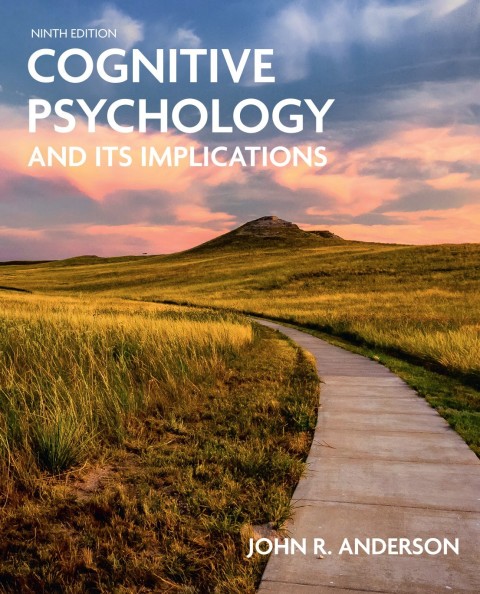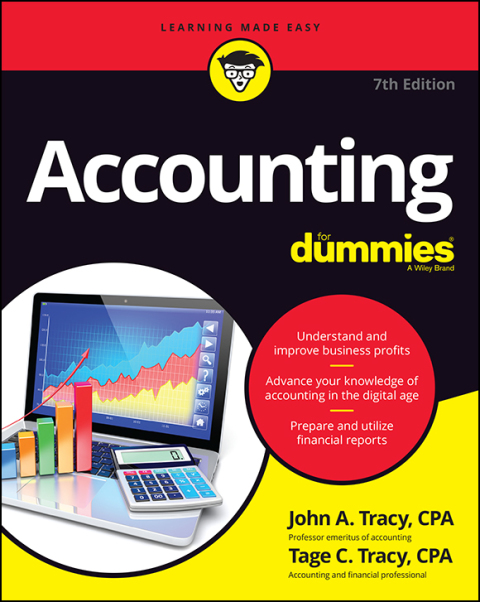Description
Efnisyfirlit
- About this Book
- Cover Page
- Halftitle Page
- Title Page
- Copyright Page
- About the Author
- Dedication
- Brief Contents
- Contents
- Preface
- Chapter 1 The Science of Cognition
- Motivations for Studying Cognitive Psychology
- Intellectual Curiosity
- Implications for Other Fields
- Practical Applications
- Implications 1.1 What Does Cognitive Psychology Tell Us about How to Study Effectively?
- The History of Cognitive Psychology
- Early History
- Psychology in Germany: Focus on Introspective Observation
- Psychology in America: Focus on Behavior
- The Cognitive Revolution: AI, Information Theory, and Linguistics
- Information-Processing Analyses
- Implications 1.2 The Replicability Crisis
- Cognitive Neuroscience
- Information Processing: The Communicative Neurons
- The Neuron
- Neural Representation of Information
- Organization of the Brain
- Localization of Function
- Topographic Organization
- Methods in Cognitive Neuroscience
- Neural Imaging Techniques
- Using fMRI to Study Equation Solving
- A Cognitive Neuroscience Revolution?
- Chapter Review
- Questions for Thought
- Key Terms
- Chapter 2 Perception
- Visual Perception in the Brain
- Early Visual Information Processing
- Information Coding by Neurons in the Visual System
- Depth and Surface Perception
- Object Segmentation
- Visual Pattern Recognition
- Template-Matching Models
- Implications 2.1 CAPTCHAs: Separating Humans from Bots
- Feature Analysis
- Object Recognition by Deep Convolutional Networks
- Face Recognition
- Implications 2.2 New Developments in Face-Recognition Software
- Speech Recognition
- Feature Analysis of Speech
- Categorical Perception
- Context and Pattern Recognition
- Massaro’s FLMP Model for Combination of Context and Feature Information
- Other Examples of Context and Recognition
- Conclusions
- Chapter Review
- Questions for Thought
- Key Terms
- Chapter 3 Attention and Performance
- Serial Bottlenecks
- Auditory Attention
- The Filter Theory
- The Attenuation Theory and a Late-Selection Theory
- Visual Attention
- The Neural Basis of Visual Attention
- Inattentional Blindness
- Visual Search
- The Binding Problem
- Neglect of the Visual Field
- Object-Based Attention
- Central Attention: Selecting Lines of Thought to Pursue
- Implications 3.1 Cell Phones and Distraction
- Automaticity: Expertise through Practice
- The Stroop Effect
- Prefrontal Sites of Executive Control
- Conclusions
- Chapter Review
- Questions for Thought
- Key Terms
- Chapter 4 Mental Imagery
- Verbal Imagery Versus Visual Imagery
- Implications 4.1 Using Brain Activation to Read People’s Minds
- Visual Imagery
- Mental Rotation
- Image Scanning
- Mental Comparison of Magnitudes
- Are Visual Images Like Visual Perception?
- Visual Imagery and Brain Areas
- Imagery Involves Both Spatial and Visual Components
- Individual Difference in Visual Imagery
- Implications 4.2 Spatial Skills and STEM Education
- Cognitive Maps
- Egocentric and Allocentric Representations of Space
- Map Distortions
- Conclusions: Visual Perception and Visual Imagery
- Chapter Review
- Questions for Thought
- Key Terms
- Chapter 5 Representation of Knowledge
- Knowledge and Regions of the Brain
- Memory for Meaningful Interpretations of Events
- Memory for Verbal Information
- Memory for Visual Information
- Importance of a Meaningful Interpretation to Memory
- Implications 5.1 Mnemonic Techniques for Remembering Vocabulary Items
- Propositional Representations
- Amodal Versus Perceptual Symbol Systems
- Embodied Cognition
- Conceptual Knowledge
- Semantic Networks
- Schemas
- House
- Prototype Theories Versus Exemplar Theories
- Rule-Based and Theory-Based Structures of Categories
- Natural Categories and Their Brain Representations
- Conclusions
- Chapter Review
- Questions for Thought
- Key Terms
- Chapter 6 Human Memory: Encoding and Storage
- Memory and the Brain
- Sensory Memory
- Visual Sensory Memory
- Auditory Sensory Memory
- Short-Term Memory and Working Memory
- A Theory of Short-Term Memory
- Baddeley’s Theory of Working Memory
- The Frontal Cortex and Primate Working Memory
- Activation and Long-Term Memory
- Activation Calculations
- Spreading Activation
- Practice and Memory Strength
- The Power Law of Learning
- Neural Correlates of the Power Law
- Factors Influencing Memory
- Spacing Effects
- Elaborative Processing
- Implications 6.1 How Does the Method of Loci Help Us Organize Recall?
- Techniques for Studying Textual Material
- Incidental Versus Intentional Learning
- Flashbulb Memories
- Conclusions
- Chapter Review
- Questions for Thought
- Key Terms
- Chapter 7 Human Memory: Retention and Retrieval
- Are Memories Really Forgotten?
- The Retention Function
- How Interference Affects Memory
- The Fan Effect: Networks of Associations
- The Interfering Effect of Preexisting Memories
- Both Decay and Interference?
- An Inhibitory Explanation of Forgetting?
- Implications 7.1 Is Forgetting Adaptive?
- Relatedness Protects Against Interference
- Retrieval and Inference
- Plausible Retrieval
- The Interaction of Elaboration and Inferential Reconstruction
- Eyewitness Testimony and the False-Memory Controversy
- Implications 7.2 How Have Advertisers Used Knowledge of Cognitive Psychology?
- False Memories and the Brain
- Associative Structure and Retrieval
- The Effects of Encoding Context
- The Encoding-Specificity Principle
- The Hippocampal Formation and Amnesia
- Implicit Versus Explicit Memory
- Implicit Versus Explicit Memory in Normal Participants
- Procedural Memory
- Conclusions: The Many Varieties of Memory in the Brain
- Chapter Review
- Questions for Thought
- Key Terms
- Chapter 8 Problem Solving
- The Nature of Problem Solving
- A Comparative Perspective on Problem Solving
- The Problem-Solving Process: Problem Space and Search
- Problem-Solving Operators
- Acquisition of Operators
- Analogy and Imitation
- Analogy and Imitation from an Evolutionary and Brain Perspective
- Operator Selection
- Difference Reduction
- Means–Ends Analysis
- The Tower of Hanoi Problem
- Goal Structures and the Prefrontal Cortex
- Giving Up on Problem Solving
- Problem Representation
- The Importance of the Correct Representation
- Functional Fixedness
- Implications 8.1 When Humans Are Better at Solving Problems Than Computers
- Set Effects
- Incubation Effects
- Insight
- Conclusions
- Chapter Review
- Questions for Thought
- Key Terms
- Chapter 9 Expertise
- Skill Acquisition and Brain Activity
- General Characteristics of Skill Acquisition
- Three Phases of Skill Acquisition
- Power Law of Learning
- The Nature of Expertise
- Proceduralization
- Tactical Learning
- Strategic Learning
- Problem Perception
- Pattern Learning and Memory
- Implications 9.1 Computers Achieve Chess Expertise Differently Than Humans Do
- Long-Term Memory and Expertise
- The Role of Deliberate Practice
- Talent versus Deliberate Practice
- Transfer of Skill
- Theory of Identical Elements
- Educational Implications
- Conclusions
- Chapter Review
- Questions for Thought
- Key Terms
- Chapter 10 Reasoning
- Reasoning and the Brain
- Reasoning About Conditionals
- Two Valid Rules of Inference
- Two Invalid Patterns of Inference
- Causal Reasoning
- The Wason Selection Task
- Permission Interpretation of the Conditional
- Probabilistic Interpretation of the Conditional
- Final Thoughts on the Connective If
- Reasoning About Quantifiers
- Categorical Syllogisms
- The Atmosphere Hypothesis
- Limitations of the Atmosphere Hypothesis
- Process Explanations
- Inductive Reasoning and Hypothesis Testing
- Hypothesis Formation
- Hypothesis Testing
- Scientific Discovery
- Implications 10.1 How Convincing Is a 10% Result?
- Dual-Process Theories
- Conclusions
- Chapter Review
- Questions for Thought
- Key Terms
- Chapter 11 Decision Making
- The Brain and Decision Making
- Probabilistic Judgment
- Bayes’s Theorem
- Base-Rate Neglect
- Conservatism
- Correspondence to Bayes’s Theorem with Experience
- Judgments of Probability
- The Adaptive Nature of the Recognition Heuristic
- Making Decisions Under Uncertainty
- Implications 11.1 What Can We Believe with High Confidence?
- Framing Effects
- Implications 11.2 Why Are Adolescents More Likely Than Adults to Make Bad Decisions?
- Choosing Among Many Alternatives
- Neural Representation of Subjective Utility and Probability
- Conclusions
- Chapter Review
- Questions for Thought
- Key Terms
- Chapter 12 Language Structure
- Language and the Brain
- The Field of Linguistics
- Productivity and Regularity
- Linguistic Intuitions
- Competence Versus Performance
- Syntactic Formalisms
- Phrase Structure
- Pause Structure in Speech
- Speech Errors
- Transformations
- Is Human Language Special?
- Arbitrary Association of Sign and Meaning
- Displacement in Time and Space
- Discreteness and Productivity
- Can Apes Use Human Language?
- Implications 12.1 Apes and the Ethics of Experimentation
- The Relation Between Language and Thought
- The Behaviorist Proposal
- Linguistic Determinism
- Does Language Depend on Thought?
- The Modularity of Language
- Language Acquisition
- The Issue of Rules and the Case of Past Tense
- The Quality of Input
- Is There a Critical Period for Language Acquisition?
- Implications 12.2 Does Bilingualism Confer a Cognitive Advantage?
- Language Universals
- Constraints on Transformations
- Parameter Setting
- Conclusions: The Uniqueness of Language: A Summary
- Chapter Review
- Questions for Thought
- Key Terms
- Chapter 13 Language Comprehension
- Implications 13.1 Intelligent Chatterboxes
- Brain and Language Comprehension
- Parsing
- Constituent Structure
- Immediacy of Interpretation
- Processing Syntactic Structure
- Semantic Considerations
- The Integration of Syntax and Semantics
- Neural Indicants of Syntactic and Semantic Processing
- Ambiguity
- Neural Indicants of the Processing of Transient Ambiguity
- Lexical Ambiguity
- Modularity Compared with Interactive Processing
- Utilization
- Bridging Inferences and Elaborative Inferences
- Inference of Reference
- Pronominal Reference
- Negatives
- Processing Extended Texts: Levels of Representation, and Situation Models
- Dimensions of Information in Situation Models
- Implications 13.2 Nonverbal Communication
- Conclusions
- Chapter Review
- Questions for Thought
- Key Terms
- Chapter 14 Individual Differences in Cognition
- Cognitive Development
- Piaget’s Stages of Development
- Conservation
- What Develops?
- The Empiricist–Nativist Debate
- Increased Mental Capacity
- Increased Knowledge
- Cognition and Aging
- Implications 14.1 Is There a Relationship Between Age and Job Performance?
- Psychometric Studies of Cognition
- Intelligence Tests
- Implications 14.2 Does IQ Determine Success in Life?
- Factor Analysis
- Different Dimensions of Intelligence
- Verbal Ability
- Spatial Ability
- Cognitive and Neural Correlates of Intelligence
- Conclusions
- Chapter Review
- Questions for Thought
- Key Terms
- Glossary
- References
- Name Index
- Subject Index
- Back Cover






Reviews
There are no reviews yet.